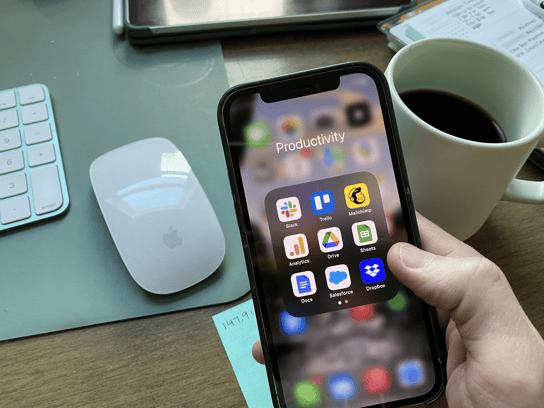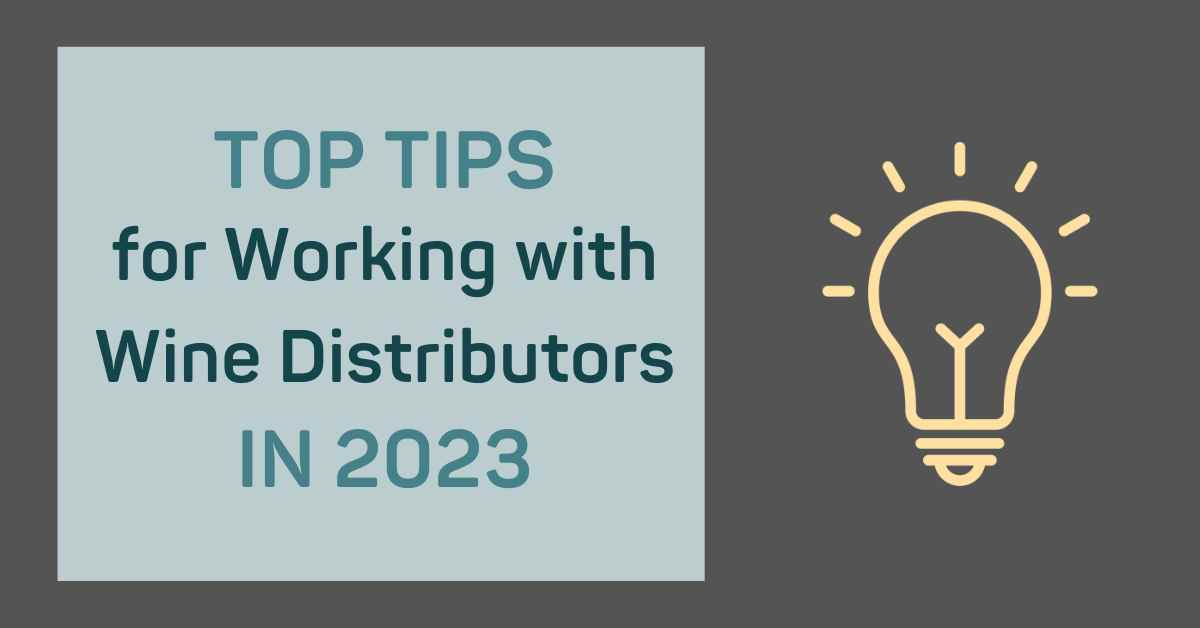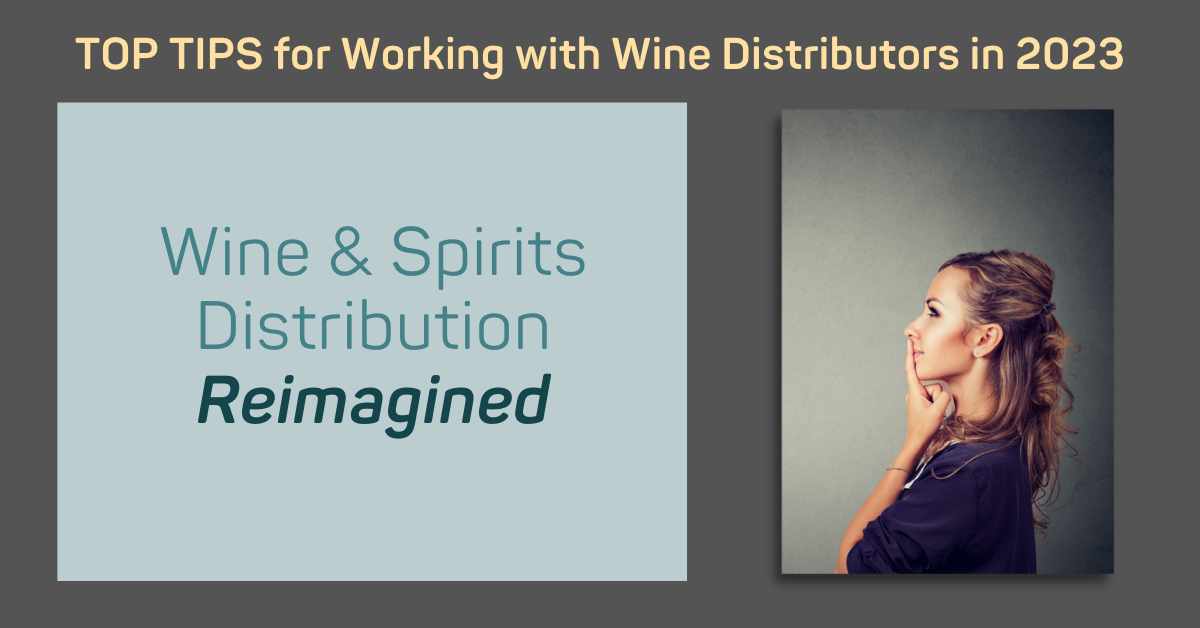Top Tips for Working with Wine Distributors in 2023
Times have changed and so must YOU Working with wine distributors in 2023 is going to be very different from previous years. Just take a moment to...
Table of Contents
Right before our eyes, a monumental shift is taking place in selling wine & spirits in the US and 100% of it is driven by TECHNOLOGY.

What “pounding the pavement” looks like for the real sales pros.
Among other sweeping and permanent changes, the pandemic of 2020 severely accelerated the adoption of digital sales capabilities across all three tiers of the wine & spirits industry especially as it relates to working with wine distributors. Ready or not, having an all-inclusive digital selling strategy is now an unquestionable requirement for those in a sales role.
Unless you want to get left behind, you, as a wine & spirits sales pro, need to take your selling game to the next level. And you need to do it now. To put a finer point on things and to help you advance the cause inside your own sales organization, here are five specific reasons to act NOW.
Remember the shock and awe we all experienced at the very beginning of the pandemic when learning just how few people even knew it was possible to order alcohol online? The convergence of necessity and convenience sparked an online buying spree never before seen on this planet.
The pandemic also taught us something else that will alter the course of selling wine and spirits in the three-tier channel which is this: selling to one person at a time in a face-to-face situation, is not only extremely inefficient but terribly expensive.
Not many people are talking about this fact in public. Still, you can bet behind the closed doors of most wine & spirits companies’ board rooms, there have been some serious discussions about the incredible waste of money that certain aspects of having a sales team entails.
There will most certainly be a vast reduction in the number of face-to-face selling opportunities in the years to come. But, not all of it is due to health and safety concerns. A great deal of it is because there are far fewer salespeople on the street.
Selling wine and spirits face-to-face, and in person, is now a luxury that few producers and brand owners can afford. But without sounding too insensitive, it is not necessarily a bad thing. Companies that immediately improved their ability to sell digitally in 2020, (early adopters) now have a considerable head start on their cohorts in the industry.
I’ve been expounding for years now to my winery and distillery audiences about the dangers of relying too heavily on wine distributors to build distribution and sales for them. It is not so much a function of willingness, as it is one of capability (or lack of it). The simple fact is there are just way too many brands and far too few distributors.
Like it or not, the burden of building sales and distribution has fallen back to the brand owner. But if anyone thought the unworkable bottleneck was bad before the pandemic, it will be far more severe in the times to come.
There are only two things brand owners can expect from their distributors nowadays:
To be quite honest, even these two things are tenuous.
What is the solution? Brand owners need to develop strategies and capabilities to control their own destinies digitally. They need direct access to their best customers in each of the markets they are in distribution.
Attracting and retaining trade buyers and then nurturing those relationships must be done digitally. The good news is that it’s totally doable IF you have the strategy and the skills. There are plenty of wineries and distilleries doing it right now. Are you one of them?
For compelling evidence, look no further than what the major distributors have been up to. They have created new online capabilities with which to service on-premise customers big and small.
Five years ago, Republic National Distributing joined forces with LibDib to position themselves beautifully for the future. Which, in case you have not been paying attention, is all about enabling restaurants, bars, and retailers to discover and purchase (wholesale) alcohol online. Just stop and think about the implications for a moment. Game-changing! LibDib mobile launched in the fall of last year, and this is just the beginning, folks.
Not to be outdone, Southern Glazer’s created their own e-commerce platform called Proof promptly rolling it out to 27 US markets. Proof aims to provide what they call a “best-in-class online ordering experience” for its customers. When SGWS does something, I take it very seriously and so should you.
Another essential thing to keep in mind is that an actual salesperson formerly called on all these restaurant, bar, and retail customers. The pandemic put the kibosh on that in a hurry. With technology racing in to fill the void, it’s forcing most on-premise sales specialists to pivot to other career trajectories.
In December of 2020, online marketplace and communications platform, SevenFifty, launched their new e-commerce portal for wholesale alcohol distributors.
I think you are getting the point. What does all this mean for the producer community (wineries and craft distilleries)? It implies that without some serious adoption of tech-driven sales strategies of your own, you will fall further and further behind.
Go to your bookshelf right now and dust off your copy of Geoffrey Moore’s 1991 book, Crossing the Chasm. Who in their right mind (at that time) thought this book (about the technology adoption life cycle) would ever be required reading for a winery or distillery executive?
If you do not own the book, let me save you some time. Only sixteen percent of humans are proactive enough to seek out the first-mover advantage. The rest, appropriately called “Early Majority (34%), “Late Majority” (34%), and “Laggards” (16%) are more prone to wait.
If you are reading this blog post, you most likely are in the 16 percent called “Early Adopters.” But do not get too cocky because the “Innovators” (2.5%) are already putting tech at the forefront of their strategy. I know this for a fact because many of them are my clients and students of my online courses.
As I have done a fair amount of recruiting in the last 4 years, I am professionally qualified to state there is a lack of tech-savvy sales pros in the job pool.
Finding someone who comes to the role fully equipped to execute a modern selling approach that is heavily laden with tech is not easy. This means prospective employers will highly prize anyone willing to invest in their own success and seek out the necessary training.
Not sure how you measure up to modern standards? Rate yourself from 1-5 (5 being “awesome,” 1 being “needs work”) on the following success attributes:
As more and more wineries and distilleries “get with the program” and decide to separate themselves from the laggers and late adopters, the need for sales pros who are well versed in all things digital will only accelerate.
After the early 2020s, when few things were within our control, it is refreshing to be able to do something so powerful without even having to get up from your desk!
For more information and articles like this, please visit www.winesalesstimulator.com
Wine Sales Stimulator is a group membership program providing winery and distillery owners and executives the training they need to grow sales. The program includes online classrooms, a private networking group, and weekly live coaching sessions. The self-paced training modules cover twelve topics relevant to increasing sales. The program was created by Ben Salisbury, an established expert in selling and marketing wines and spirits. Ben has more than 38 years of experience, and has worked as a sales executive for some of the largest global companies including Constellation Brands. Ben and his team of experts have helped more than one hundred clients improve their sales success. Their client list includes some of the most recognized brands.

Times have changed and so must YOU Working with wine distributors in 2023 is going to be very different from previous years. Just take a moment to...
.jpeg)
The Advent of "Digital 3-Tier" At our 8-year old consulting firm, we help mostly small wine and spirits producers. We also assist small importers. ...

If there is anyone out there who thinks the three-tier system will ever go away in the US Market, I would like to ask for a puff of whatever it is...